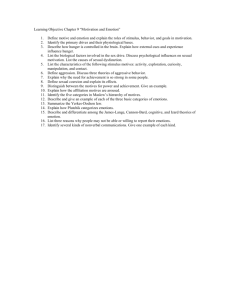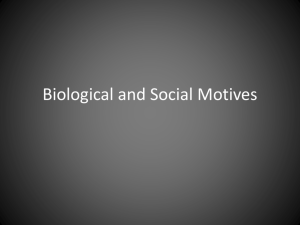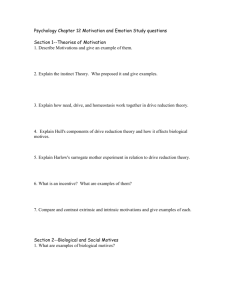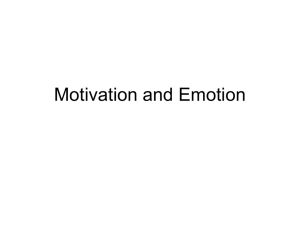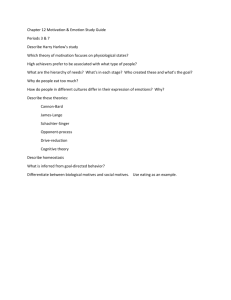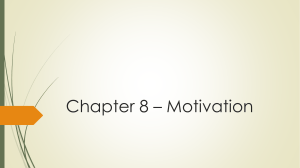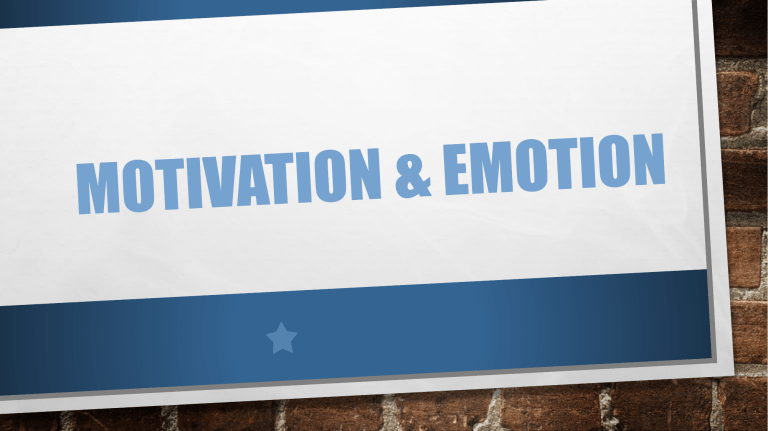
MOTIVATION Motivation is the process that initiates, guides, and maintains goal-oriented behaviours. Motivation involves the biological, emotional, social, and cognitive forces that activate behaviour. NATURE OF MOTIVATION • It is a continuous process • It may be positive or negative • It is need based • It is complex process • It differs from person to person TYPES OF MOTIVES •Motives can be divided into three major categories •Primary motives •Stimulus motives •Secondary motives PRIMARY MOTIVES •Are based on biological needs that must be met for survival. They are innate like hunger, thirst , pain avoidance, needs for air, sleep and regulation of body temperature. STIMULUS MOTIVES • Express our needs for stimulation and information. For example, activity, curiosity, exploration, throwing parties, reading, hanging out with friends, emailing each other. Imagine what your life would be like if you felt no arousal? No stress? Boring! SECONDARY MOTIVES: •Based on learned needs, drives, and goals. Helps explain many human activities like making music, creating a web page, trying to win a skateboarding contest. •These motives are related to learned needs for power, affiliation,(the need to be with others ), approval, status, security, and achievement. TYPES OF MOTIVATION •Intrinsic Motivation: This is when motivation comes from "internal" factors to meet personal needs. We do things we do because we enjoy them. •Extrinsic Motivation: This is when motivation comes from "external" factors that are given or controlled by others. FACTORS AFFECTING MOTIVATION The Primary Motivation Factors •Fear. Workers have to know there will be consequences for poor performance and bad behaviour. •Peer Pressure. Good managers use people to motivate • . other. each •Pride. •Recognition. •Money THEORIES OF MOTIVATION •Different schools of thought look at motivation ( that power that either starts or stops behavior ) through different lenses. •Instinct theory •Drive theory •Incentive theory EMOTIONS EMOTIOS A complex reaction pattern, involving experiential, behavioral and physiological elements.” “ PHYSIOLOGY AND EMOTION •Emotion is a physiological experience with behavioral expression of feelings in response to any sensory information. The behavioral changes include musculoskeletal, autonomic, and endocrine responses. HOW EMOTIONS AFFECT OUR PHYSIOLOGY? • Increases or decreases in heart rate, cutaneous blood flow (blushing or turning pale), sweating, and gastrointestinal motility can all accompany various emotions. THEORIES OF EMOTION • Physiological theories suggest that responses within the body are responsible for emotions. • Neurological theories propose that activity within the brain leads to emotional responses. • Cognitive theories argue that thoughts and other mental activity play an essential role in forming emotions.
